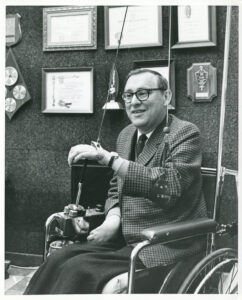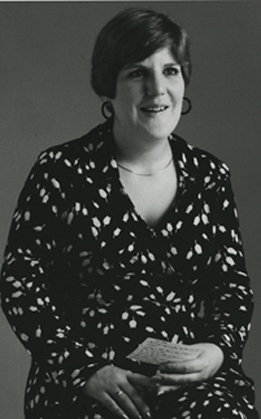Max C. Rheinberger, Jr. Papers
Named Handicapped American of the Year in 1968, Max C. Rheinberger, Jr., worked as a community leader to uplift those with disabilities by bringing awareness to and actively deconstructing barriers to access. Rheinberger himself was a quadriplegic as a result of contracting polio in 1952. During rehabilitation he completed a degree in accounting before embarking on a lifelong career as a businessman and distinguished figure in his community.
Beginning with the founding of his first business in 1956, Rheinberger worked to empower those with disabilities by providing rehabilitative training for those who were otherwise deemed “unemployable.” He was involved in various civic organizations, including Duluth’s City Council, Duluth’s Chamber of Commerce, Minnesota’s Rehabilitation Association, and the Executive Board of the National President’s Committee on Employment of the Handicapped. His efforts and role as a leader brought him recognition as a disability rights figure at both a local and national level.
The collection includes newspaper clippings, certificates and awards, publications, correspondence, and a scrapbook, detailing his work in disability rights activism as well as his personal endeavors.




